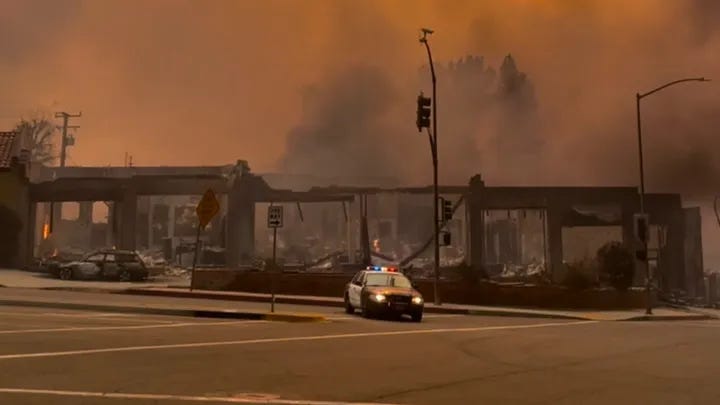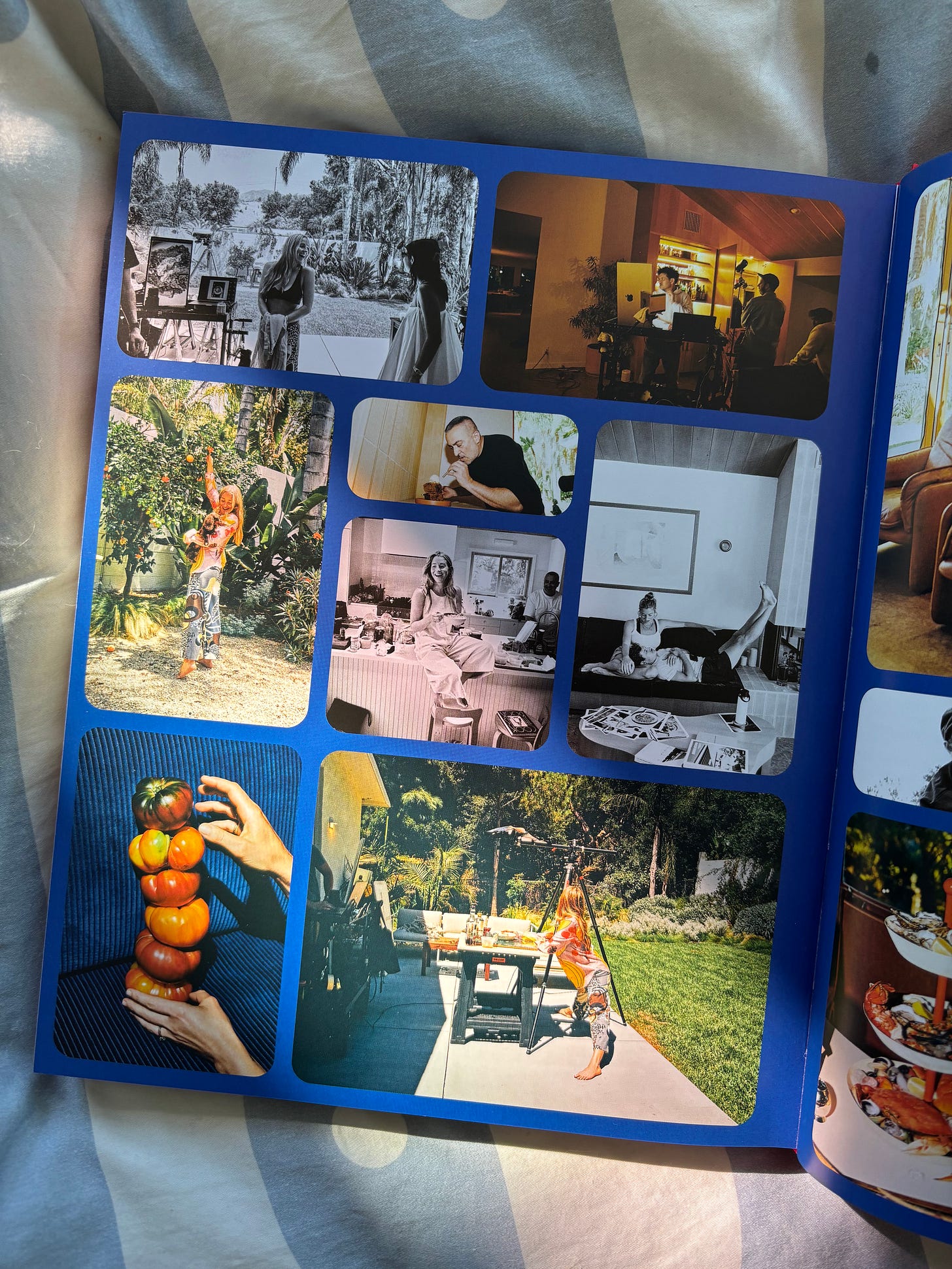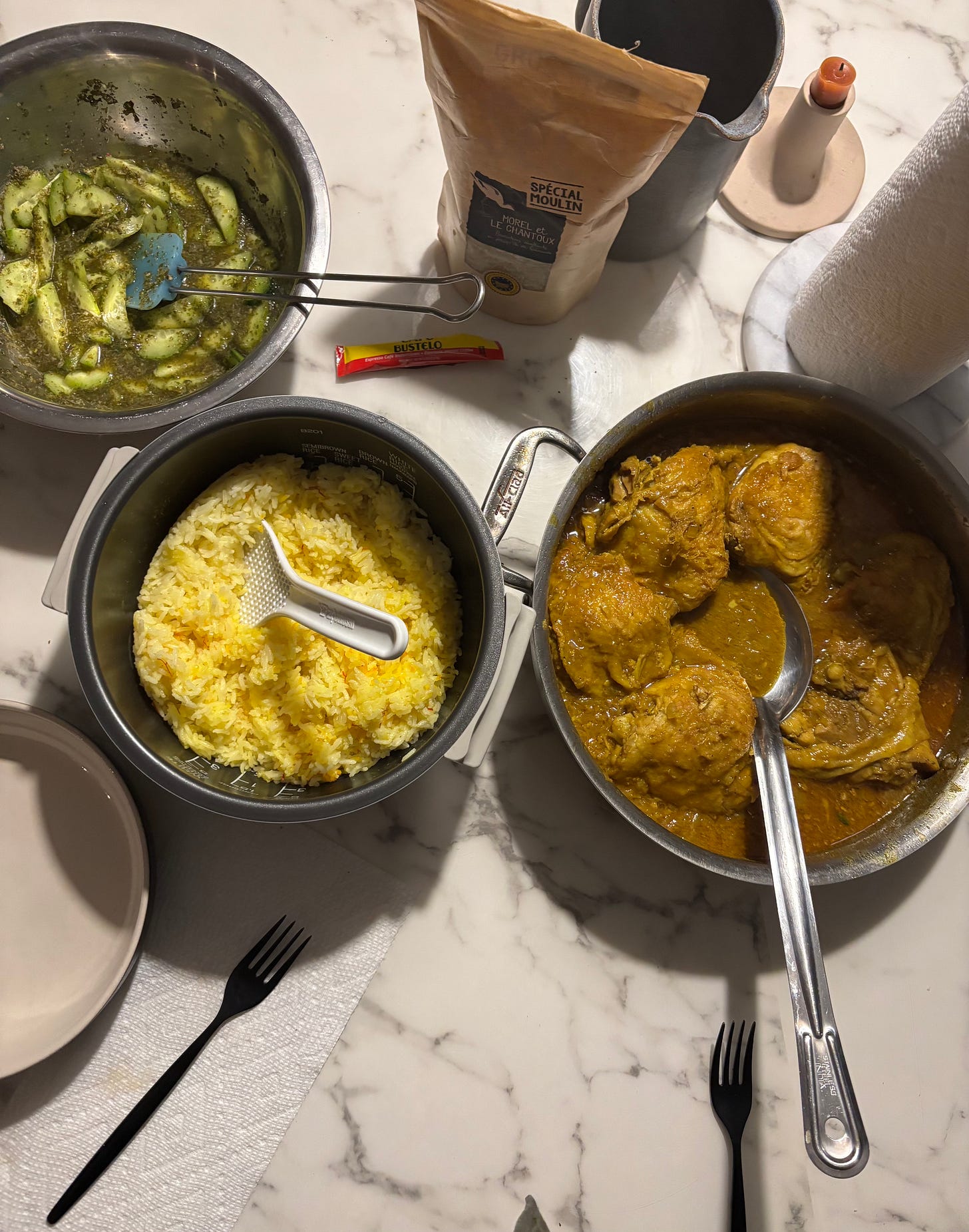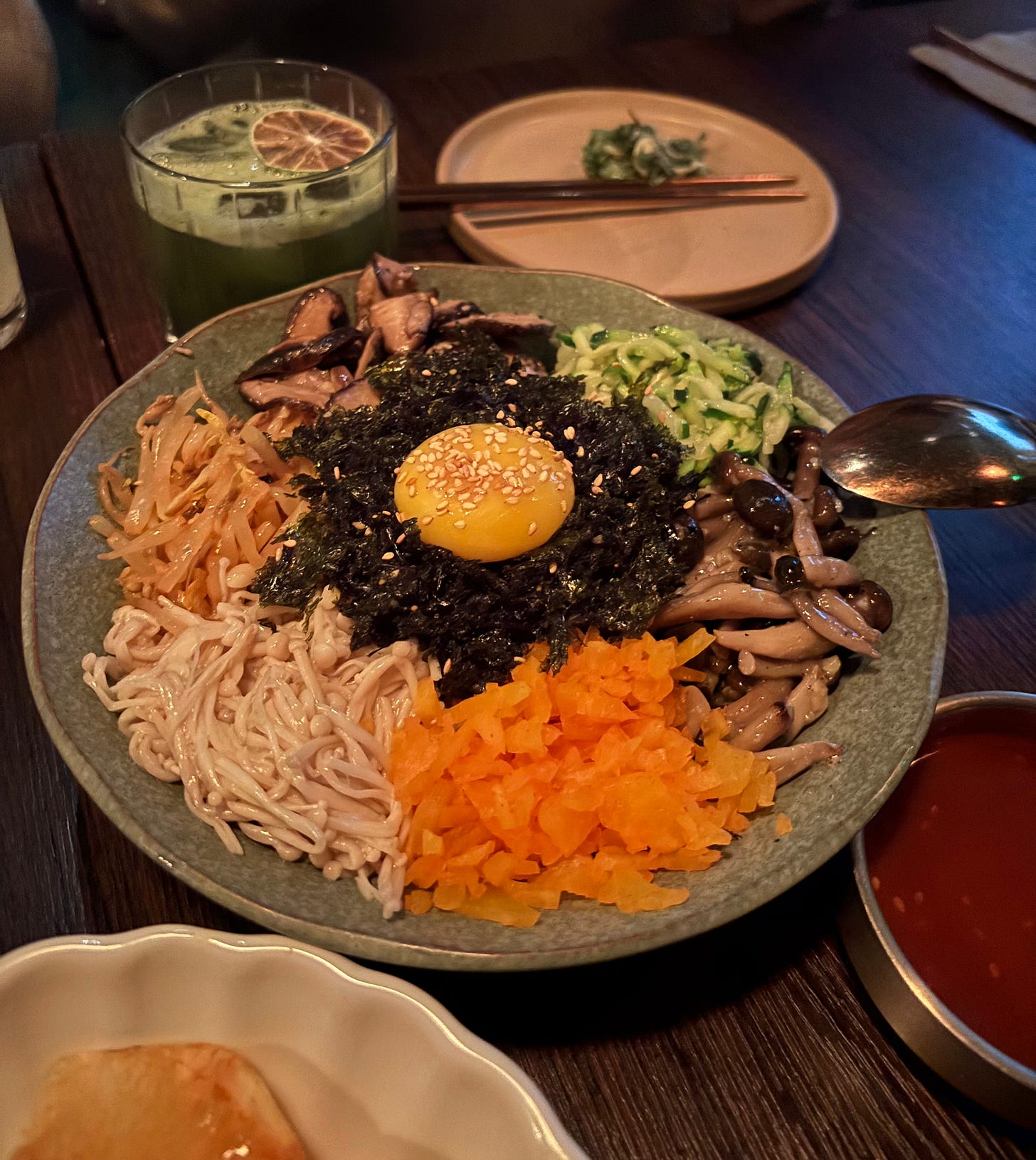Needless to say, I did not make it to New York on Wednesday.
The day before, a massive windstorm had combined with eight months of zero rainfall to create a fire event the likes of which LA has never seen. Hunter has family in Pacific Palisades, one of the most affected areas. Everyone is safe, thankfully, but it wasn’t the time to leave town for nonessential travel. Hunter came home early from a conference, and now we’ve been stationary ever since. As I’m typing this, the air is bizarrely clear, even as fires still rage to the east and west of our house.
You’ve probably seen the endless list of fundraisers and calls for donations: From Black families in Altadena, which was exempt from redlining and allowed homeowners to accrue wealth that’s been wiped out overnight. From the Pasadena Humane Society, which is treating hundreds of animals for burns and smoke inhalation. From the LAFD Foundation’s Wildfire Relief Fund, which sources equipment. From the Anti-Recidivism Coalition, which is raising funds for the hundreds of incarcerated firefighters putting their lives on the line for minimal pay.

I’m leading with those because, obviously, it feels stupid and useless to blog right now. I’ll admit to keeping up with this newsletter for selfish reasons — out of a need for the very routine and consistency so many people lost when they lost their homes. The least I can do with this platform is to signal boost places to give while I’m at it.
On the other hand, the thing about food is that it interfaces with every other aspect of our lives. The same altered climate that’s left us so vulnerable; the same communities left in tatters; the same basic need to fuel ourselves as we deal with extreme events. You can find lists of restaurants taken out by the fires, as well as chefs providing aid to victims and first responders. In my own life, the impact is as unavoidable in the everyday act of getting food on the table as it is everywhere else.
Last Sunday, before all this, I gathered the ingredients for a recipe I wanted to try by Molly Baz, the chef previously best known for her time in the Bon Appetit test kitchen, her use of abbreviations and her overwhelming passion for Caesar salad. The recipe in question came from Molly’s book More Is More, her second and the first written after she moved to Altadena from the East Coast. The book is filled with gorgeous photos of a lush, modern living space that, by the time I actually made the recipe, no longer existed.
(The recipe, if it matters, was for a raw-and-roasted cauliflower salad in a silken tofu-based green sauce. I’d make it again, but riff heavily on the base with other combinations of herbs and acids — riffability around a strong central idea in recipes being a virtue, not a vice.)
A bizarre, headspinning side effect of fire coming for a place with so many creative, public-facing people is that we have our own, parasocial relationship with a lot of lost homes. I’ve never met Baz, but I know her kitchen was yellow because it reminded her of butter. I’ve never set foot in the den of home decor creator Benjamin Le, but I’ve watched him futz with its plants over countless soothing TikToks. I’ve never experienced a catastrophe like this, as a highlight reel that abruptly shifts into a disaster movie.
This morning, I went back to the same farmers market where I got the aforementioned ingredients. I ran into a friend who’s hosting her parents and their dogs, waiting anxiously to see if the fire line holds or dips down to their canyon house; I spoke to a vendor who had previously survived Hurricane Katrina, probably the closest analog for what LA is staring down. When I walked up to his booth, he was on the phone with a friend in Altadena, counseling them on how long the Red Cross could put displaced persons up in a hotel.
There’s an eerie sense of early-pandemic déjà vu in the air right now, starting with the making that’s once again widespread. Hunter made the meal above — Thai Muslim chicken and rice from Leela Punyaratabandhu’s excellent cookbook Bangkok — because we had most of the ingredients on hand, sparing us a trip to the grocery store in potentially toxic air. Last night, he made pasta from scratch to go with some leftover sauce even though we had plenty of dried in the pantry, because staying inside means having time for labor-intensive project cooking. I half expect a sourdough renaissance if the renewed winds next week extend this nightmare even further.
Then there’s the downstream effect on the restaurant industry, even places whose staff and facilities have been spared any physical damage so far. I’m not the first to point out that, between COVID and the entertainment industry strikes, Los Angeles has had a hard half-decade, hollowing out Hollywood’s gig worker middle class and reliant industries like hospitality. (Not everyone in LA is in film and TV, but those people spend money everywhere — unless they can’t.) It was already a rough January for restaurant closures, from my local pizza spot to the once zeitgeist-leading Guerilla Tacos. At least one business, Silver Lake wine bar The Ruby Fruit, has already cited the fires as a final death knell.
A few nights ago, we went out for dinner with some friends who had just returned from evacuating after they lost power and were craving a slice of normalcy. On a Friday night, I was able to grab a last minute table for 4 at Danbi in Koreatown during prime dinner hours, at a restaurant that had just landed on the LA Times’ vaunted 101 list. Sure enough, the dining room was busy when we arrived but hardly jam-packed.
The meal was great — the staff did an amazing job taking care of us in a stressful time, and the food was the kind of cheffy-but-still-midrange-price Korean that’s been missing from the LA scene since the late, great Hanchic left the scene. (Not that it’s a one-to-one replacement, since the menu is sadly lacking in tteokbokki ragú.) We over-ordered because we underestimated how big the portions would be, even in the shrinkflation era. We sampled most of the menu and would recommend all of it, though the scallop pancake and zabuton steak were particular highlights.
In normal circumstances, my only nitpick would be just how fast everything came out. In our current ones, the rapid onslaught of food felt like what happens when a kitchen used to a much higher influx of orders has a new ticket come in and pounces. I have no knowledge of Danbi’s margins, but I worry for LA’s food businesses as a whole if the slowdown continues. It’s not like eating out is the noblest thing you can do right now, and God knows there are more urgent demands on people’s money and time for the foreseeable future. I just hope people continue to patronize places that depend on a client base that’s now as unsteady as ever.
If you’ve made it this far, thank you for reading. Please stay safe.






